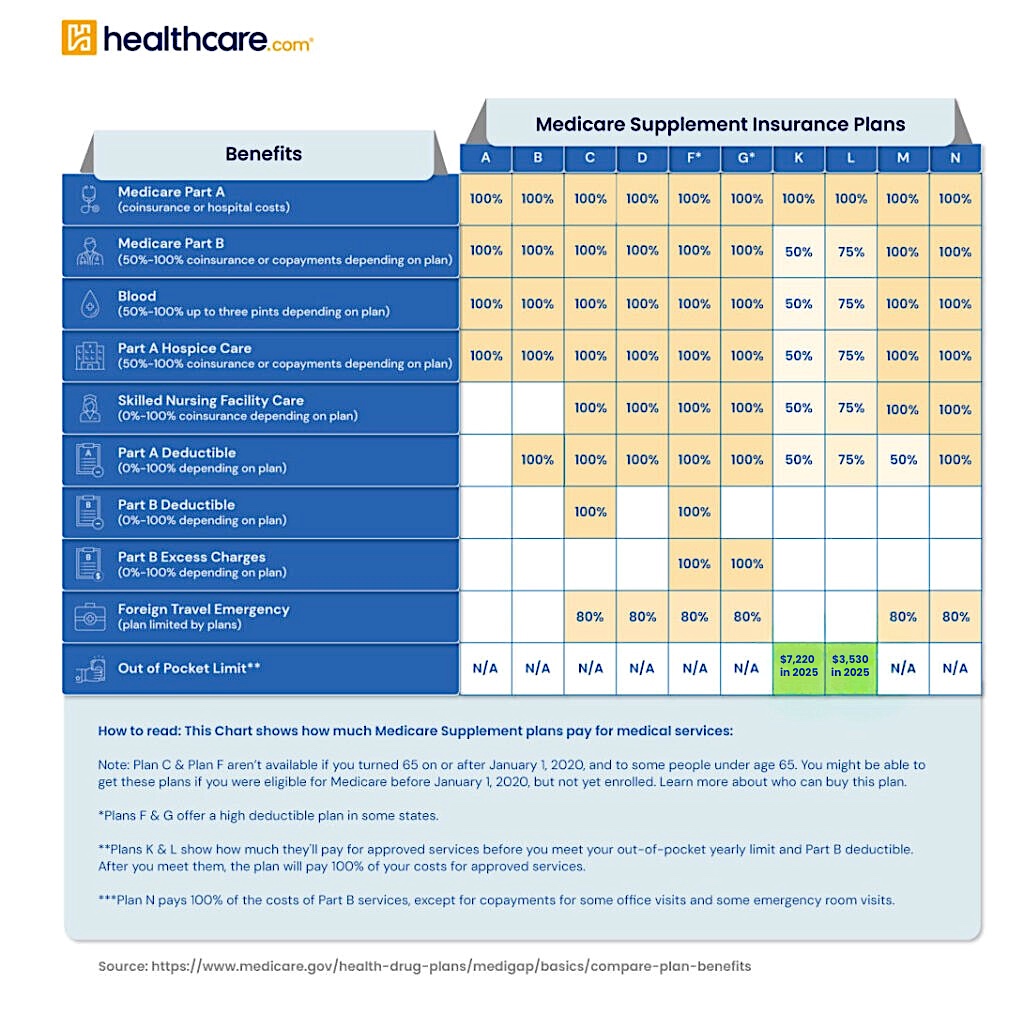Written by bchan
We aim to help you make informed healthcare decisions. While this post may contain links to lead generation forms, this won’t influence our writing. We follow strict editorial standards to give you the most accurate and unbiased information.
What You Need to Know
- Medicare Supplement plans, also known as Medigap, help pay for out-of-pocket costs not covered by Medicare Part A and Part B.
- Massachusetts insurance companies must accept your Medicare Supplement (Medigap) plan application if you’re in your Medigap Open Enrollment Period or have guaranteed issue rights.
- The three available Medigap options in Massachusetts are Core, Supplement 1, and Supplement 1A — alternatives to the standardized A–N plans used in most states.
What Are Medicare Supplement Plans in Massachusetts?
Medicare is a federal health insurance program for individuals aged 65 and older, as well as younger people with qualifying disabilities or health conditions (e.g., end-stage renal disease).
Original Medicare, which includes Part A (Hospital Insurance) and Part B (Medical Insurance), covers many healthcare services. However, it still leaves you with out-of-pocket costs like deductibles, coinsurance, and copayments. Medicare Supplement plans help pay for these expenses.
Unlike most states, Massachusetts offers three uniquely structured Medigap plans: Core, Supplement 1, and Supplement 1A. These plans are standardized and provide consistent benefits, regardless of the insurer.
Learn how these plans work and how they benefit residents of Massachusetts.
Compare options HERE & start your health plan journey.
When Can You Enroll in a Medicare Supplement (Medigap) Policy?
You can apply for a Medigap plan at any time. However, outside of your Medigap Open Enrollment Period—or without guaranteed issue rights—insurers may use your health history to deny coverage or charge higher premiums.
Your Medigap Open Enrollment Period lasts for six months. It starts the month you’re both age 65 (or older) and enrolled in Medicare Part B. During this time, insurance companies must offer you any plan they sell at standard rates, regardless of your health.
This is the ideal time to enroll because it gives you the widest choice of plans and the best rates.
Massachusetts law also offers robust protections. Residents may join or switch plans at any time of year without being denied or charged more based on health. This includes those under 65 with qualifying disabilities (except those with end-stage renal disease).
What Are the Most Popular Medicare Supplement Plans?
In Massachusetts, the following Medigap plans are available:
- Core Plan – Comparable to standard Plan A, it offers basic coverage including Part A and B coinsurance, hospice care coinsurance, the first 3 pints of blood, and limited mental health inpatient days.
- Supplement 1 – Similar to now-unavailable Plan C, this plan includes everything in Core, plus the Part A deductible, skilled nursing facility coinsurance, the Part B deductible, emergency coverage during foreign travel, and additional mental health inpatient care. This plan is only available to beneficiaries who were eligible before January 1, 2020.
- Supplement 1A – Analogous to Plan G, it offers the same benefits as Supplement 1, except it does not cover the Part B deductible. This plan is available to all eligible beneficiaries, including those new to Medicare.
How Do You Choose a Medicare Supplement Plan?
Decide on a plan based on your healthcare needs and expected usage:
- Choose Core if you want basic coverage and lower premiums.
- Choose Supplement 1A if you want broader coverage but don’t qualify for Supplement 1.
- Choose Supplement 1 if you qualify and want maximum coverage, including the Part B deductible.
Compare premiums for the same plan type across insurers. Though benefits are standardized, costs can differ due to:
- Attained age rating: Premiums rise as you age.
- Issue age rating: Premiums are based on the age when you enroll.
- Community rating: Everyone pays the same rate regardless of age.
Always compare “apples to apples” — e.g., Core from one insurer vs. Core from another.

How Much Do Medigap Policies Cost?
Medigap premiums in Massachusetts vary based on:
- Your age and gender
- Tobacco use
- Plan type (Core, Supplement 1, or 1A)
- Pricing method used by the insurer
(Per your request, cost details are not included.)
Compare options HERE & start your health plan journey.
What If You Want to Change Your Medicare Supplement Plan?
Massachusetts allows you to change Medigap plans at any time. You cannot be denied coverage or charged more because of your health or age.
This makes the state one of the most flexible for Medigap policyholders who want to switch plans.
What Are Alternatives to Medicare Supplement Plans?
Medicare Advantage plans, also known as Part C, are an alternative to Original Medicare, offered by Medicare-approved private insurance companies.
These plans combine Part A and Part B, and most include Part D (prescription drug coverage). Many also offer added benefits such as routine dental, vision, hearing, and wellness programs.
Instead of buying a Medigap and a Part D plan separately, you may consider an all-in-one Medicare Advantage plan.
Learn more about Massachusetts Medicare Advantage plans.
Medicare Part D
Medicare Part D plans offer standalone prescription drug coverage.
- Who needs it: Those enrolled in Original Medicare who want prescription coverage.
- What it covers: Prescription medications, varying by plan.
- How it’s offered: Through private Medicare-approved insurers.
- Not needed if: You’re enrolled in a Medicare Advantage plan that includes drug coverage.
Shop for a Medicare plan with additional benefits!
Do Medigap Plans Cover Prescription Drugs?
No. Medigap plans do not cover prescription drugs. You’ll need to purchase a separate Medicare Part D plan for prescription coverage.
Medicare Resources in Massachusetts
Massachusetts residents can access free, personalized help from:
- State Health Insurance Assistance Program (SHIP) – Offers one-on-one Medicare counseling.
- Massachusetts Division of Insurance – Oversees insurers and handles complaints.
- Massachusetts Medicaid (MassHealth) – Offers healthcare coverage to low-income individuals and may coordinate with Medicare.
Next Steps
If a Medicare Supplement plan in Massachusetts fits your needs, take the next step by comparing plans available in your area. You can browse options online or connect with a licensed insurance agent for expert guidance and support.
Thank you for your feedback!








